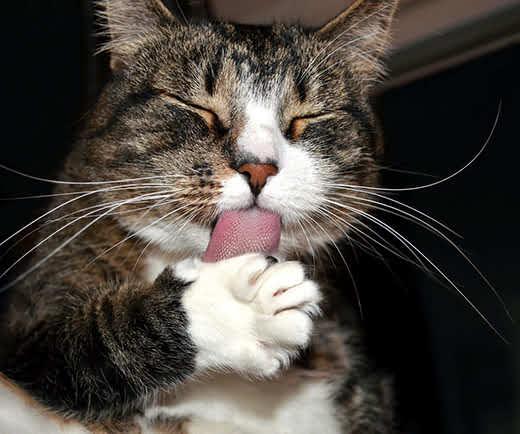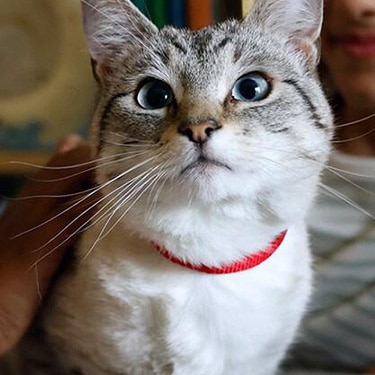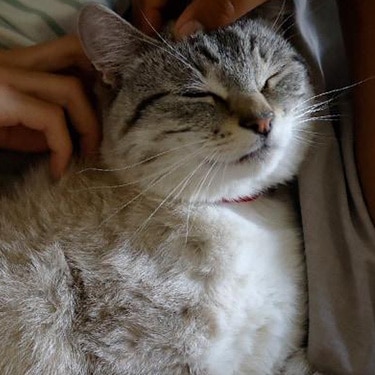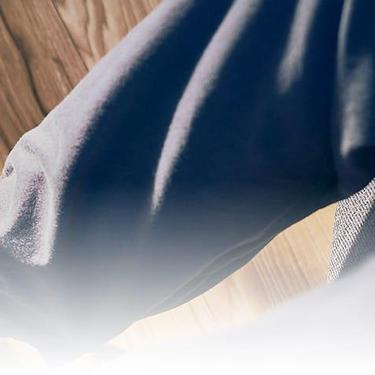
-
Find the right food for your petTake this quiz to see which food may be the best for your furry friend.Find the right food for your petTake this quiz to see which food may be the best for your furry friend.Featured products
 Small & Mini Mature Adult 7+ Dog Food
Small & Mini Mature Adult 7+ Dog FoodHill's Science Plan Small & Mini Breed Mature Adult Dog Food with Chicken is a complete pet food, specially formulated with ActivBiome+ Multi-Benefit Technology.
Tailored nutrition to support graceful ageing in small dogs. Specially made with a synergistic blend of nutrients for energy & vigor.Shop Now Perfect Digestion Small & Mini Adult Dog Food
Perfect Digestion Small & Mini Adult Dog FoodHill's Science Plan Perfect Digestion Small & Mini Breed Adult Dog Food with Chicken & Brown Rice supports ultimate digestive well-being & a healthy microbiome.
Shop Now Perfect Digestion Large Breed Puppy Food
Perfect Digestion Large Breed Puppy FoodPrecisely balanced nutrition with Hill's ActivBiome+ prebiotic blend actively contributes to supporting digestive health and overall well-being to help your pet feel their best
Shop NowFeatured products Hypoallergenic Dry Cat Food
Hypoallergenic Dry Cat FoodHILL'S SCIENCE PLAN Hypoallergenic Adult cat food with egg & insect protein is a complete pet food for adult cat 1–6 years old. It's formulated for cats with delicate skin and stomach, with limited high quality novel protein sources & no grain.
Shop Now Kitten Food
Kitten FoodTender chicken chunks in gravy for kittens, with omega-3s for healthy eye & brain development and high-quality protein to support muscle growth. With balanced minerals to promote strong bones & teeth.
Shop Now Hairball & Perfect Coat Adult Cat Food
Hairball & Perfect Coat Adult Cat FoodHill's Science Plan HAIRBALL & PERFECT COAT Adult cat food with Chicken is specially formulated to effectively help avoid hairball formation in adult cats while promoting a beautiful coat. Thanks to its mix of essential Omega-6 fatty acids, this food benefits the cat's skin and fur keeping them healthy and shiny. Our Advanced Fibre Technology helps reduce hairballs by naturally promoting their passage through the gut. This food is formulated with high-quality protein for a perfectly balanced, great-tasting recipe.
Shop Now -
Dog
- Dog Tips & Articles
-
Health Category
- Weight
- Food & Environmental Sensitivities
- Urinary
- Digestive
- Joint
- Kidney
-
Life Stage
- Puppy Nutrition
- Adult Nutrition
- Senior Nutrition
Cat- Cat Tips & Articles
-
Health Category
- Weight
- Skin & Food Sensitivities
- Urinary
- Digestive
- Kidney
-
Life Stage
- Kitten Nutrition
- Adult Nutrition
Featured articles Understanding Your Pet's Microbiome
Understanding Your Pet's MicrobiomeLearn what a pet's microbiome is, how it contributes to your pet's gut & overall health, and why nutrition is important in maintaining healthy microbiomes.
Read More Pet Food Storage Tips
Pet Food Storage TipsWhere you store your cat and dog food can make a big difference in the quality and freshness once it is opened. Here are some common questions and recommendations for optimal storage for all of Hill’s dry and canned cat and dog food.
Read More The Right Diet For Your Pet
The Right Diet For Your PetLearn what to look for in healthy pet food & nutrition, including ingredients, quality of the manufacturer, your pet's age, and any special needs they have
Read More -


Have you ever seen your cat licking their paws and body and wondered what the reason is for the peculiar habit? It turns out that they don't just do it to be clean. As dedicated followers of a regular grooming routine, cats spend a lot of time making themselves look good, but this grooming behaviour is also tied to your kitty's physical and emotional well-being.
Why Do Cats Lick Their Paws?
Paw licking is one way that cats clean themselves — distributing saliva all over their body helps them with grooming. And primping takes up a lot of a cat's time: "Cats typically spend between 30 and 50 percent of their day grooming themselves, says Dr. Pamela Perry, a veterinarian and an animal behaviour resident of the Animal Behaviour Clinic at Cornell University's College of Veterinary Medicine. Because evaporating saliva helps cats cool off when they're overheated, licking their paws provides the added benefit of cooling relief in high temperatures.
According to the Cummings School of Veterinary Medicine at Tufts University, one other reason that cats lick themselves is that licking — and grooming in general — releases endorphins, the body's feel-good hormone. It's a calming activity.

Excessive Paw Licking
If your cat is paying too much attention to their paws (or other parts of their body), it likely indicates an underlying medical issue. Instead of trying to stop the habit itself, bring your kitty to the vet, so they can identify and treat the issue behind your cat's behaviour.
There are several physical and psychological issues that can lead to excessive grooming, explains the Cummings School of Veterinary Medicine, including:
- Allergies
- Fleas
- Dry skin
- A neurological condition
- Stress or anxiety
Causes of cat anxiety include being separated from their pet parent; environmental changes, like moving into a new home; and perceived threats, such as having another pet in the household.


Tasty Tips
Diagnosis and Treatment
Is your cat licking too much? If you think their behaviour is excessive, keep a closer eye on them. Take note of when they lick their paws or other parts of their body and how long they spend doing it. Note any changes to their skin or fur, such as irritation or hair loss. Additionally, check for any signs of pain. If you notice any of these changes make sure to bring them in to their veterinarian. This information will help your vet determine whether your kitty is licking too frequently or too abrasively.
At the appointment, your vet will complete a physical exam of your cat. They'll probably run a few tests to help determine the cause of and treatment for their behaviour. Treatment will vary based on what your veterinarian diagnoses, but may include skin cream or shampoos, oral or injected anti-inflammatory medicine, changes to your cat's food, flea and tick prevention medicine, pheromone therapy or environmental modifications, says Vetwest. Adding that antidepressant or anti-anxiety medicine may also be an option in some cases..
Environmental modifications, or enrichments, are opportunities for your cat to get more activity and stimulation within your house. This can be as simple as feeding them using a food puzzle, providing them more opportunities to utilise their climbing instincts by installing cat trees or shelves, and having them hunt for their toys.
Your vet may also refer you to a cat behaviourist if they think that environmental or social modification could help, notes International Cat Care.
In general, your cat licking their paws isn't cause for concern. But if they show signs of excessive licking, speak with your vet as soon as possible. Together, you and your vet can determine the best treatment for your furry friend.


Christine O'Brien is a writer, mom, and long-time cat parent whose two Russian Blues rule the house. Her work also appears in Care.com, What to Expect, and Fit Pregnancy, where she writes about pets, pregnancy, and family life. Find and follow her on Instagram and Twitter @brovelliobrien.
Related products

Hill's Science Plan HAIRBALL & PERFECT COAT Adult cat food with Chicken is specially formulated to effectively help avoid hairball formation in adult cats while promoting a beautiful coat. Thanks to its mix of essential Omega-6 fatty acids, this food benefits the cat's skin and fur keeping them healthy and shiny. Our Advanced Fibre Technology helps reduce hairballs by naturally promoting their passage through the gut. This food is formulated with high-quality protein for a perfectly balanced, great-tasting recipe.

Hill's Science Plan Adult Cat Food with Chicken is a complete pet food, specially formulated with ActivBiome+ Multi-Benefit Technology.
This food is specially formulated to fuel the energy needs of cats during the prime of their life.

HILL'S SCIENCE PLAN Hypoallergenic Adult cat food with egg & insect protein is a complete pet food for adult cat 1–6 years old. It's formulated for cats with delicate skin and stomach, with limited high quality novel protein sources & no grain.

Tender chicken chunks in gravy for kittens, with omega-3s for healthy eye & brain development and high-quality protein to support muscle growth. With balanced minerals to promote strong bones & teeth.
Related articles

Discover what you can do to spot and support a sensitive cat stomach. See what routines and food you can implement to help your cat be happy and healthy.

Find out about how you can support your cat's digestion to boost overall health. Diet is key to a long and happy life for your cat, so discover what you can do.

Discover which cat toys games your feline friend might like, and how they are great sources of exercise. Explore our library of articles to learn more.

When learning how to train your cat, you'll start with very basic first steps that both reward good behavior and discourage the bad.

Put your cat on a diet without them knowing
Our low calorie formula helps you control your cat's weight. It's packed with high-quality protein for building lean muscles, and made with purposeful ingredients for a flavorful, nutritious meal. Clinically proven antioxidants, Vitamin C+E, help promote a healthy immune system.
Put your cat on a diet without them knowing
Our low calorie formula helps you control your cat's weight. It's packed with high-quality protein for building lean muscles, and made with purposeful ingredients for a flavorful, nutritious meal. Clinically proven antioxidants, Vitamin C+E, help promote a healthy immune system.

